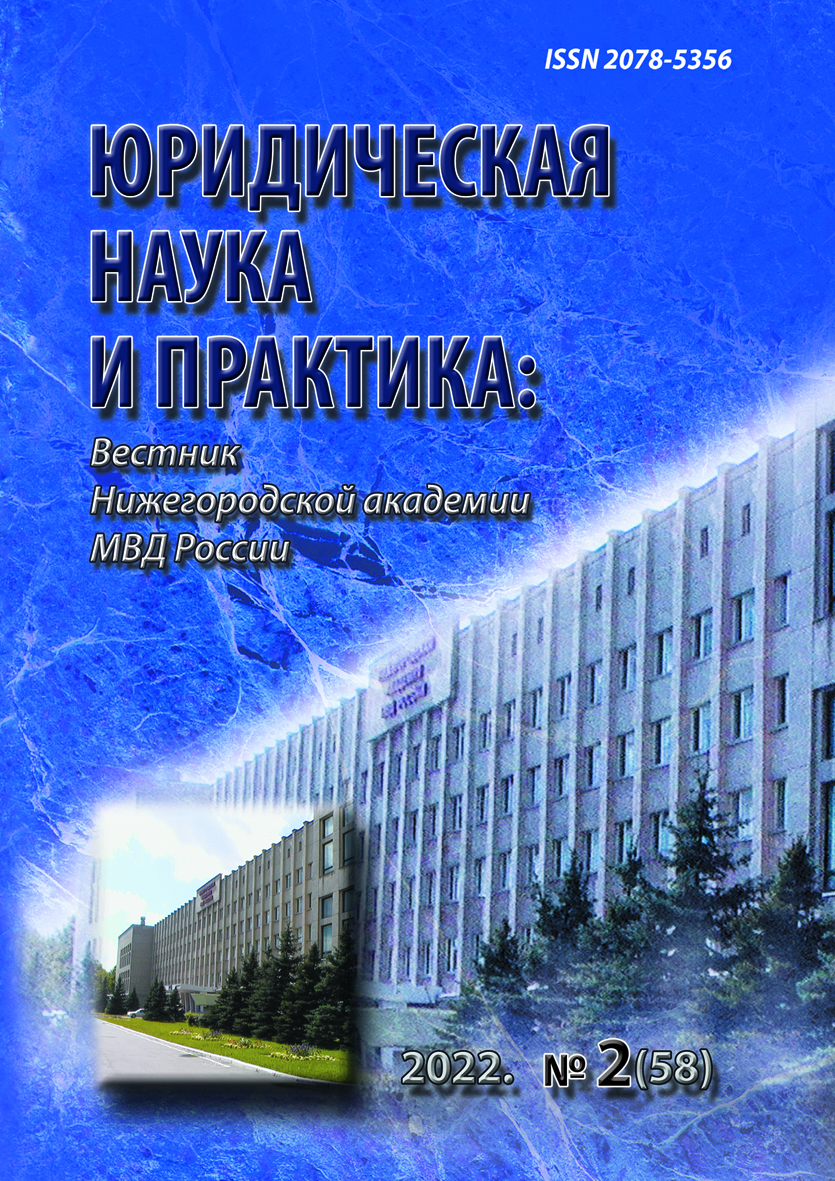Russian Federation
For contemporary society, the language of law is the key that introduces its subjects into the legal system, a means of modeling its objects, as well as the subject of legal regulation, a reflection of the diversity of relations between them. The article examines the role of language in legal genesis and some features of the “language of law” in Russian culture; touches on certain issues of the epistemology of law and the problems of the formation of a system of concepts in Russian jurisprudence and legal culture.
legal language, epistemology of law, legal culture, jurisprudence, legal perception, will, freedom
1. Williams G. Learning the Law. 11th ed. London, 1982. Pp. 2-3.
2. Skinner B.F. Verbal behavior. New York, 1957.
3. Sapir E. Language. Introduction to the study of speech. Selected works on linguistics and cultural studies: transl. from English; total ed. and intro. art. by A. E. Kibrika. Moscow, 1993. (In Russ.)
4. Ibbotson P., Tomasello M. Evidence rebuts Chomsky’s theory of language learning. / Scientific American. 2016. November. URL: https://www.scientificamerican.com/article/evidence-rebuts-chomsky-s-theory-of-language-learning/ (accessed 21.09.2021).
5. Krasnov A. S. Dyad “identity-alienation” in the syntagm of K. Marx: history and modernity. Bulletin of the Saratov University. Ser. Philosophy. Psychology. Pedagogy, 2013, vol. 13, issue 3. (In Russ.)
6. Vesting T. Legal Theory and the Media of Law / trans. J. C.Wagner. Cheltenham, Northampton, 2018. P.x.
7. Geertz C. Off Echoes: Some Comments on Anthropology and Law. Political and Legal Anthropology Review, 1996, vol.19, no. 2, pp. 33-37.
8. Samuel G. Epistemology and Method in Law. Aldershot. 2003.
9. Granger G.-G. La science et les sciences. 2 ed. Paris. 1995. Pp. 14-17.
10. Lessig L. The Law of the Horse: What Cyberlaw Might Teach. Harvard Law Review, 1999, vol. 113, pp. 501-546.
11. Lloyd D., Freeman M. Lloyd’s Introduction to Jurisprudence. 6th ed. London. 1994.
12. Harman G. Epistemic Contextualism as a Theory of Primary Speaker Meaning. Philosophy and Phenomenological Research, 2007, vol. LXXV, no. 1.
13. Fasmer M. Etymological dictionary of the Russian language: in 4 vol. St. Petersburg, 1996. (In Russ.)
14. Pimenova M. V. The concepts of truth and truth and ways of their objectification. Actual problems of philology and pedagogical linguistics, 2011, no. 13, pp. 61-68. (In Russ.)
15. Egorova O. S., Kirillova O. A. “Freedom” and “will” as key concepts of Russian culture. Yaroslavl Pedagogical Bulletin, 2012, vol. 1, no. 4. (In Russ.)
16. Arutyunova N. D. Will and freedom. Logical analysis of language. Moscow, 2003. (In Russ.)
17. Lisitsyn A. G. Analysis of the concept “freedom - will - freedom” in Russian. Disertation … candidate of philology sciences. Moscow, 1995. (In Russ.)












